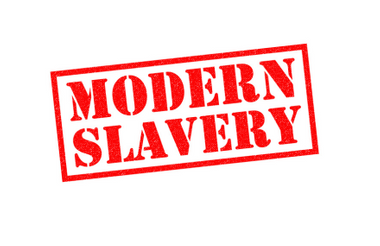Modern slavery is one of the greatest human rights issues of our time and charity investors are well-placed to influence how global businesses approach this issue.
According to a report by the International Labour Organization (ILO), Walk Free and International Organisation for Migration (IOM), there are 50 million people around the world trapped in modern slavery. Of these, 28 million were in forced labour and 22 million were in forced marriage. Women, children and migrants are disproportionately more vulnerable to being trapped.
Modern slavery is an abhorrent abuse of human rights encompassing several forms of exploitation, including forced labour, human trafficking, servitude and forced marriage. Eradicating modern slavery is one of the United Nations (UN) Sustainable Development Goals (SDGs). However, six years before the goals are meant to be achieved, the numbers of those trapped in modern slavery have increased. The Covid-19 pandemic, war, climate change and the rise of authoritarian regimes have disrupted labour markets and have contributed to this rise.
As powerful stakeholders, charity investors are in a position to help address the issue of modern slavery by analysing the approach of companies in which they invest and comparing it with best practices. If necessary, they can engage with companies to strengthen their approach.
There is huge potential for action by businesses to reduce modern slavery around the world. While some businesses are more exposed to modern slavery risks than others, and it is therefore a more material concern, CCLA thinks that all businesses potentially have some exposure to modern slavery. Large, listed companies are in a potentially influential position to set standards, implement policies and actively ‘find’, ‘fix’ and ‘prevent’ modern slavery. Whatever the exposure, companies can take additional steps to strengthen their approach.
Dame Sara Thornton, consultant, Modern Slavery for CCLA, said: “Financial institutions should be at the heart of the global effort to tackle slavery and trafficking. As the Blueprint for Mobilising Finance against Slavery published by the Liechtenstein Initiative correctly identified, the world’s bankers, investors, insurers, and financial partners ‘have unparalleled influence over global business … and that finance is a lever by which the entire global economy can be moved’.”
In November, CCLA launched a public Modern Slavery benchmark. The first of its kind, it seeks to create an objective assessment of corporate modern slavery performance aligned with statutory requirements, government developed guidance, as well as international voluntary standards on business and human rights.
The benchmark showed a large variation in the maturity of company approaches between the leaders and the laggards on modern slavery. Leaders showed mature governance, due diligence as well as disclosing cases of modern slavery in their operations and supply chains, while the laggards have published policy commitments but little other evidence to show that they are working to meaningfully address modern slavery.
Overall, companies were focused on policy compliance rather than active work to address the risks of modern slavery. Furthermore, efforts to fix the problem and provide remedy for victims was barely existent.
Consumer facing companies, energy and utility sector companies were the best performing sectors; this is partly due to their relatively high exposure to the risks but there was a clear difference between those companies that were actively managing human rights risks and those that were not.
The CCLA Modern Slavery UK Benchmark is a tool which charity investors can use in their engagement with companies, and they should be encouraging their asset managers to join ‘Find it, Fix it, Prevent it’ or Votes Against Slavery. The hope is to harness business’ competitive behaviour to drive better corporate disclosures on modern slavery.












